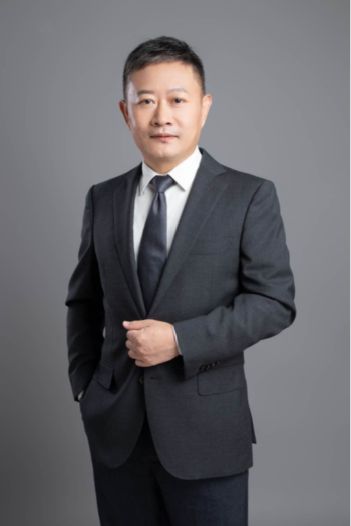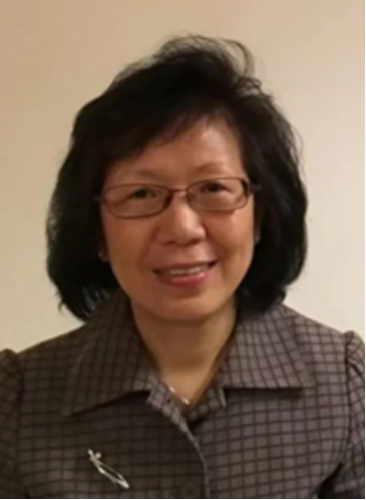LanguageBilingual (Chinese and English)
Workshop Abstract
With the arrival of the intelligent era, emerging technologies such as artificial intelligence, big data, and learning analytics are reshaping the landscape of education, profoundly transforming the ways knowledge is produced, disseminated, and applied. Traditional teaching models can no longer meet the demands of talent cultivation in this new era, presenting significant challenges for education as it shifts from knowledge transmission to knowledge innovation. How to leverage technology for teaching innovation, and facilitate deep construction and sharing of knowledge in the intelligent era, has become a core issue in current educational research and practice.
The "Knowledge and Teaching Innovation in the Intelligent Era" workshop aims to provide a platform for education researchers and practitioners to exchange and collaborate, exploring how intelligent technologies can stimulate knowledge innovation and teaching reform. The workshop will engage in in-depth discussions around the theoretical frameworks of technology-enabled teaching, innovative practices and implementation pathways, as well as the challenges and solutions faced in practical operations. Special attention will be given to how to use artificial intelligence technologies to promote the generation, interaction, and reorganization of knowledge, how to design learner-centered teaching activities, and how to enhance learning outcomes through data-driven instructional design. This workshop will offer participants opportunities to showcase research findings and experiences, inspiring further reflections on the future development of education in the intelligent era.
The workshop will adopt a small-scale, in-depth discussion format, featuring thematic presentations, case sharing, and interactive discussions to explore the possibilities and boundaries of educational innovation in the intelligent era, promoting the collaborative development of knowledge construction, teaching practices, and learning assessments.
Call for Papers Sample
1.Workshop Format: The workshop will last for 3 hours, emphasizing small scale, in-depth discussions, and multi-perspective exchanges to help participants improve the quality of their papers and enhance their research levels. The number of papers will be limited to 10, with authors allowed 15-20 minutes to share core research findings, existing issues, and suggestions for future research.
2.Submission Topics: This workshop focuses on knowledge and teaching innovation in the intelligent era. Topics for submission include (but are not limited to):
Knowledge innovation and teaching reform supported by intelligent technologies
Deep integration of artificial intelligence and instructional design
Professional development of teachers enabled by intelligent technologies
Core competencies of students in the intelligent era
Data-driven teaching optimization and learning analytics
Intelligent solutions for knowledge construction and sharing
Personalized learning and adaptive teaching supported by intelligent technologies
Knowledge assessment and feedback mechanisms in the intelligent era
Ethical issues and technical challenges in teaching innovation.
3.Submission Requirements: Authors are welcome to submit high-quality theoretical explorations and empirical research papers. Papers are categorized into "long papers" (up to 8 pages) and "short papers" (up to 4 pages). Theoretical research papers should focus on cutting-edge topics in knowledge construction, clarify theoretical foundations, core concepts, and conceptual frameworks, and propose testable theoretical hypotheses. Empirical research papers will be reviewed based on research background, objectives and questions, methods and design, results and conclusions, significance and limitations.
4.Important Dates:
Paper submission deadline: April 12, 2025
Papers will be reviewed on a rolling basis, with results notified by April 19, 2025
Final paper submission deadline: April 29, 2025
Registration deadline: May 7, 2025 (Early bird registration ends on April 30, 2025)
5.Paper Submission Instructions:
Please submit papers to the following email: fengxq@sustech.edu.cn. The subject line format should be "GCCCE2024 Workshop Paper + Name + Institution + Phone Number + Email Address." Please refer to the conference paper format example [Simplified] for paper preparation. Each paper must have at least one author registered for the conference to be presented.
Workshop Chair and Vice-Chair Information
1.Workshop Chair

Zhao Jianhua(zhaojh@sustech.edu.cn)
Deputy Director of the Future Education Research Center and Director of the Artificial Intelligence Education Research Center at Southern University of Science and Technology. Professor and doctoral supervisor. Senior expert at the UNESCO Higher Education Innovation Center, member of the Ministry of Education’s Online Teaching International Platform and Course Construction Expert Advisory Group, Vice President of the Learning Sciences Research Branch of the Chinese Higher Education Society, Executive Director of the Future Education Professional Committee of the China Education Development Strategy Society, member of the Executive Committee of the Global Chinese Computer Education Applications Society (GCSCE), member of the Guidance Committee for Online Open Courses in Undergraduate Colleges of Guangdong Province, Vice President of the Education Technology Professional Committee of the Guangdong Higher Education Society, Executive Director of the Shenzhen Education Society, and Vice President of the Education Informatization and Artificial Intelligence Professional Committee of the Shenzhen Education Society. His main research areas include artificial intelligence education, future education, technology-supported teaching and learning, learning sciences and technologies, and teacher professional development.
2.Workshop Vice-Chair

Chan, Carol Kwai Kuen(ckkchan@hku.hk)
Professor at the Faculty of Education at The University of Hong Kong, engaged in teaching and research in learning sciences for many years. Her research focuses on how people learn, particularly in the areas of learning, cognition, and teaching; information technology and knowledge construction; and learning patterns among Chinese students. Professor Chan's achievements in academic research are recognized by local and international scholars. She is currently the Associate Editor of the academic journal "International Journal of Computer-Supported Collaborative Learning" and has contributed to the editing of "The International Handbook of Collaborative Learning." Her papers have been published in renowned academic journals, including the "American Educational Research Journal," "Journal of the Learning Sciences," and "Computers & Education."
Workshop Program Committee
Yang Yuqin, Central China Normal University
Chai Shaoming, South China Normal University
Jiang Yinjian, Guangdong Technical Normal University
Leng Jing, East China Normal University
Kong Jing, Foshan University of Science and Technology
Feng Xueqi, Southern University of Science and Technology
Miao Jingmin, Guangzhou University
Wu Shaowen, Songhe Primary School, Longhua District, Shenzhen
